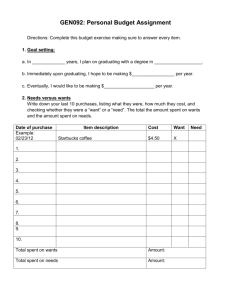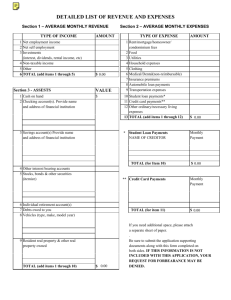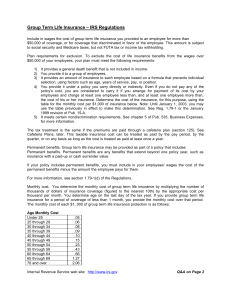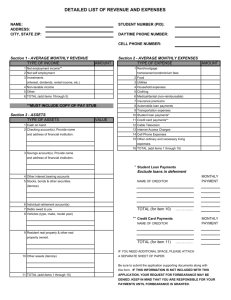Tax Consequences of Non
advertisement
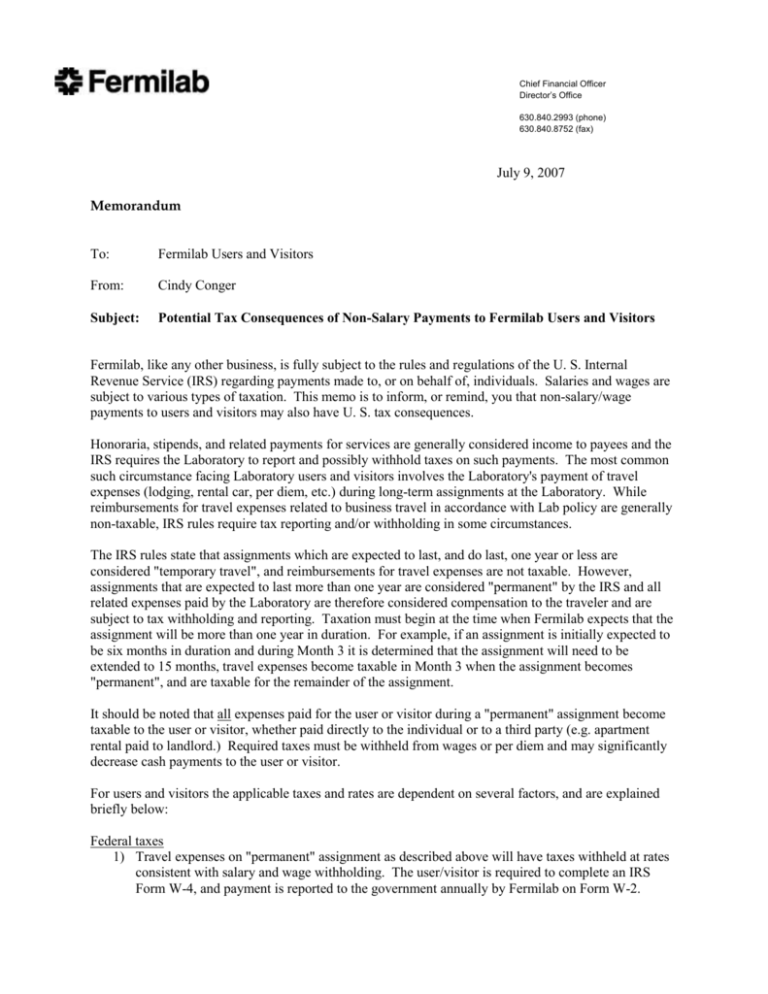
Chief Financial Officer Director’s Office 630.840.2993 (phone) 630.840.8752 (fax) July 9, 2007 Memorandum To: Fermilab Users and Visitors From: Cindy Conger Subject: Potential Tax Consequences of Non-Salary Payments to Fermilab Users and Visitors Fermilab, like any other business, is fully subject to the rules and regulations of the U. S. Internal Revenue Service (IRS) regarding payments made to, or on behalf of, individuals. Salaries and wages are subject to various types of taxation. This memo is to inform, or remind, you that non-salary/wage payments to users and visitors may also have U. S. tax consequences. Honoraria, stipends, and related payments for services are generally considered income to payees and the IRS requires the Laboratory to report and possibly withhold taxes on such payments. The most common such circumstance facing Laboratory users and visitors involves the Laboratory's payment of travel expenses (lodging, rental car, per diem, etc.) during long-term assignments at the Laboratory. While reimbursements for travel expenses related to business travel in accordance with Lab policy are generally non-taxable, IRS rules require tax reporting and/or withholding in some circumstances. The IRS rules state that assignments which are expected to last, and do last, one year or less are considered "temporary travel", and reimbursements for travel expenses are not taxable. However, assignments that are expected to last more than one year are considered "permanent" by the IRS and all related expenses paid by the Laboratory are therefore considered compensation to the traveler and are subject to tax withholding and reporting. Taxation must begin at the time when Fermilab expects that the assignment will be more than one year in duration. For example, if an assignment is initially expected to be six months in duration and during Month 3 it is determined that the assignment will need to be extended to 15 months, travel expenses become taxable in Month 3 when the assignment becomes "permanent", and are taxable for the remainder of the assignment. It should be noted that all expenses paid for the user or visitor during a "permanent" assignment become taxable to the user or visitor, whether paid directly to the individual or to a third party (e.g. apartment rental paid to landlord.) Required taxes must be withheld from wages or per diem and may significantly decrease cash payments to the user or visitor. For users and visitors the applicable taxes and rates are dependent on several factors, and are explained briefly below: Federal taxes 1) Travel expenses on "permanent" assignment as described above will have taxes withheld at rates consistent with salary and wage withholding. The user/visitor is required to complete an IRS Form W-4, and payment is reported to the government annually by Fermilab on Form W-2. 2) Tax treaties may exempt some non-residents from tax for a certain number of years. To claim a treaty exemption, the user/visitor must complete IRS Form 8233. Payments are reported to the government annually by Fermilab on Form 1042S. 3) Honorarium, stipend and related payments for services will be taxed at 30% for nonresidents if a tax treaty is not applicable, and will be reported to the government annually by Fermilab on Form 1042S. For U.S. citizens and permanent residents federal taxes are not withheld. Note: Some or all of the taxes withheld may be refundable from the IRS after the end of the calendar year depending on the individual's personal circumstances. Refunds are claimed when filing the appropriate annual income tax return with the IRS. State taxes Illinois state taxes are also applicable when the federal tax becomes applicable. The rate is 3% subject to minimum income thresholds. Social Security taxes (FICA & Medicare) 1) Social Security taxes are also applicable when the federal tax becomes applicable. 2) For non-residents of the U.S. the tax applicability is determined by the type of visa the individual holds and time spent in the U.S. General information on U.S. taxation for non-U. S. citizens can be found in the "Guide for Newcomers" on the Users Office web site at http://www.fnal.gov/pub/forphysicists/users/newcomers/taxes.html. The above are general rules; questions regarding the tax consequences of any particular arrangement should be addressed to Mike Rhoades, Chief Accounting Officer, or to me. cc: Division/Section Heads B. Chrisman M. Rhoades B. Jurkiw E. Arroyo F. Cesarano D. Keiner M. Koch P. Lesiak A. Nestander M. Smith L. Trierweiler


